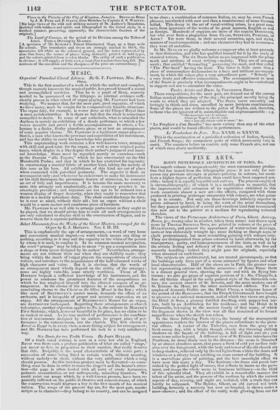Select Movementsfrom the Worhs of the Great 31asters, arranged for
the Organ by E. J. Homsms. Nos. I. II. III.
This is emphatically the age of arrangements,—a word of very loose and convenient musical import,—a word which means any thing or nothing, according as it may suit the capacity or the whim of the person by whom it is used, to employ it. In its common musical acceptation, the word" arrange " may be taken to mean "to put a composition into a shape or form never designed by its author." Nevertheless, arrange- ments are not without their use when they are skilfully made : they bring within the reach of vulgar players the compositions of classical writers, and introduce to the acquaintance of the half-educated works of high character and value. But it is obvious that the worth of an arrangement must wholly depend on the ability of the arranger : some are highly valuable, some utterly worthless. Those of Mr. HOPKLNS bespeak a sufficient knowledge of his instrument, and the power to condense the prominent features of the compositions on which be has employed himself into the allotted compass of an ar- rangement. In the choice of his subjects he is not successful. The concluding chorus to the Christ on the Olive Mount is the first ; which like most of BEETHOVEN'S sacred music, demands the effect of an orchestra, and is incapable of proper and accurate expression on an organ. All the arrangements of BEETHOVEN'S Masses for an organ, are '3EETHOVEN burlesqued. Regarding these arrangements as church voluntaries, another objection applies to No. 2, the andante in Mozmer's First Sinfonia ; which, however beautiful in its place, has no claim to be so ranked or used. As its true method of performance is the combina- tion of instruments designed by its author, its proper place of per- formance is the concert-room, not the church. The first chorus in Israel in Egypt is in every view, a snore thaws subject for arrangement; and Mr. HOPKINS has here performed his task in a very satisfactory way.


























 Previous page
Previous page